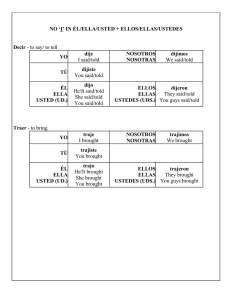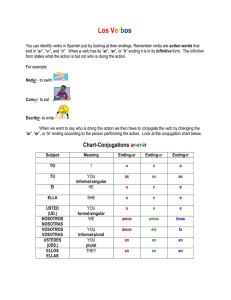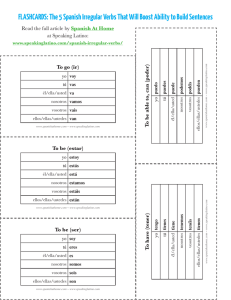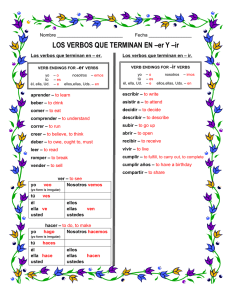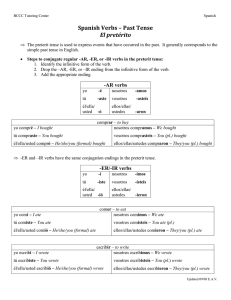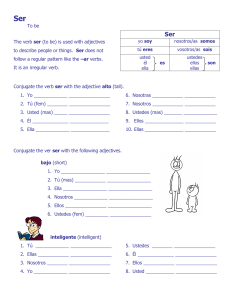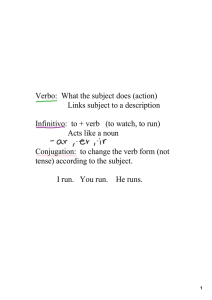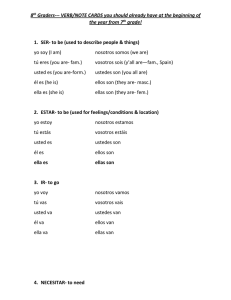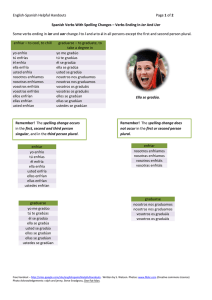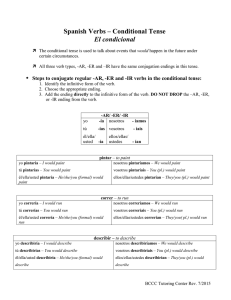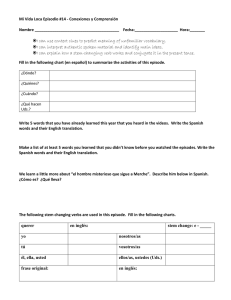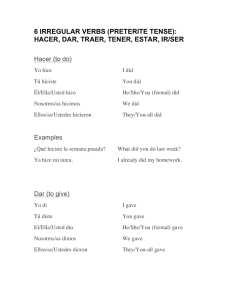Spanish Verbs – Conditional Tense El condicional
Anuncio
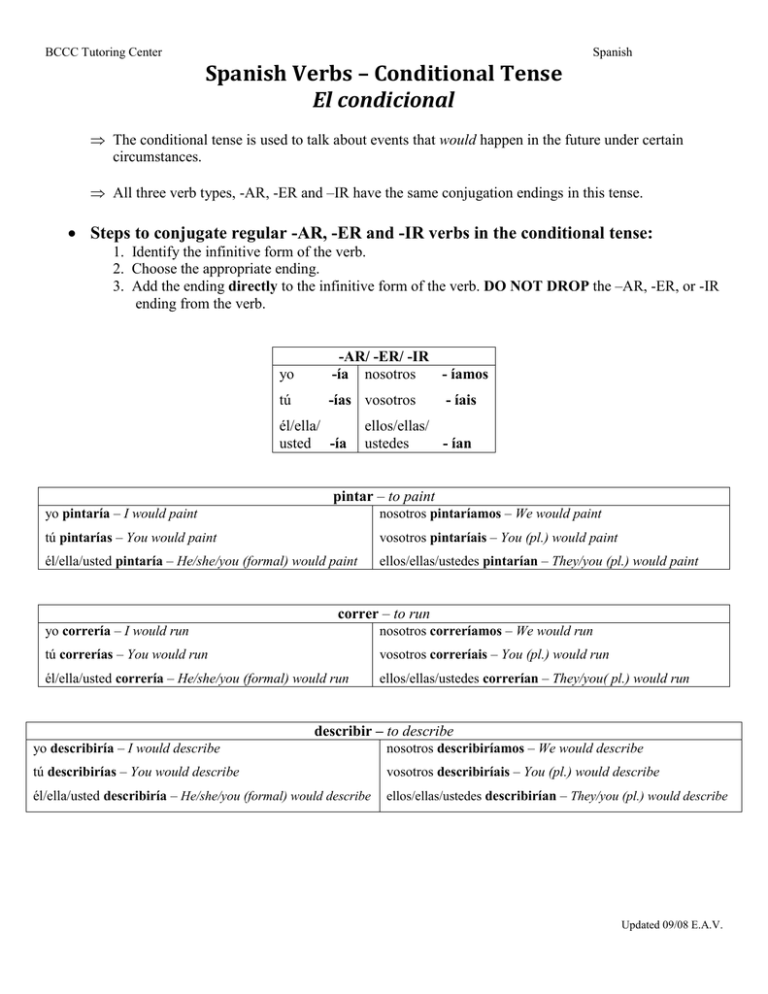
BCCC Tutoring Center Spanish Spanish Verbs – Conditional Tense El condicional The conditional tense is used to talk about events that would happen in the future under certain circumstances. All three verb types, -AR, -ER and –IR have the same conjugation endings in this tense. Steps to conjugate regular -AR, -ER and -IR verbs in the conditional tense: 1. Identify the infinitive form of the verb. 2. Choose the appropriate ending. 3. Add the ending directly to the infinitive form of the verb. DO NOT DROP the –AR, -ER, or -IR ending from the verb. yo -AR/ -ER/ -IR -ía nosotros - íamos tú -ías vosotros él/ella/ usted -ía - íais ellos/ellas/ ustedes - ían pintar – to paint yo pintaría – I would paint nosotros pintaríamos – We would paint tú pintarías – You would paint vosotros pintaríais – You (pl.) would paint él/ella/usted pintaría – He/she/you (formal) would paint ellos/ellas/ustedes pintarían – They/you (pl.) would paint correr – to run yo correría – I would run nosotros correríamos – We would run tú correrías – You would run vosotros correríais – You (pl.) would run él/ella/usted correría – He/she/you (formal) would run ellos/ellas/ustedes correrían – They/you( pl.) would run describir – to describe yo describiría – I would describe nosotros describiríamos – We would describe tú describirías – You would describe vosotros describiríais – You (pl.) would describe él/ella/usted describiría – He/she/you (formal) would describe ellos/ellas/ustedes describirían – They/you (pl.) would describe Updated 09/08 E.A.V. BCCC Tutoring Center Spanish In English the word should can also indicate the conditional tense. In Spanish the verb deber – to ought to or “to should”- indicates the conditional. deber – to ought to yo debo – I ought to/ I should nosotros debemos – We ought to/ should tú debes – You ought to/ you should vosotros debéis – You pl. ought to/ should él/ella/usted debe – He/she/you formal ought/ should ellos/ellas/ustedes deben – They/you pl. ought to/ should Debemos quedarnos en casa porque está nevando. We should stay home because it is snowing. There are many common verbs that use an irregular stem when forming the conditional tense instead of the entire infinitive. These irregular stems are also used in the future tense. Verb Irregular Stem poder – to be able to podr- haber – to have (aux.) habr- caber – to fit cabr- saber – to know sabr- querer – to want or to love querr- poner – to put pondr- salir– to go out saldr- tener – to have tendr- venir – to come vendr- valer – to be worth valdr- decir – to say dir- hacer – to do or to make har- Haría la tarea contigo pero la profesora no nos permite hacerlo juntos. I would do the homework with you but the professor doesn’t allow us to do it together. Querríamos estudiar juntos. We would like to study together. Me dijo que vendría conmigo. He told me that he would come with me. Updated 09/08 E.A.V.
